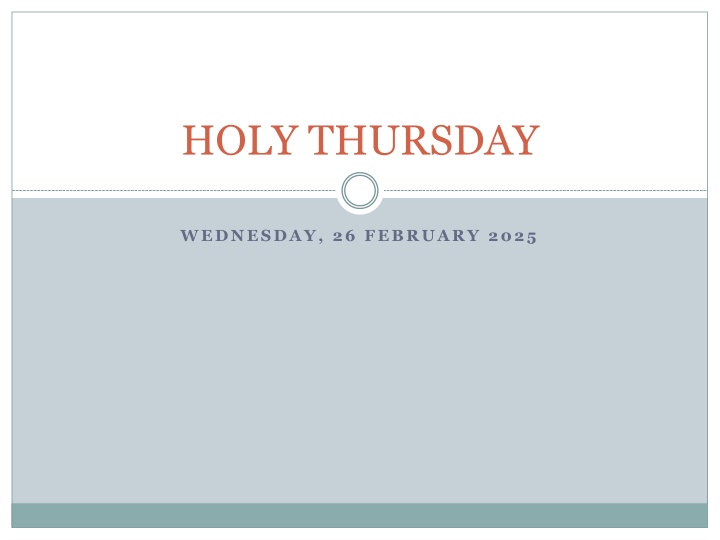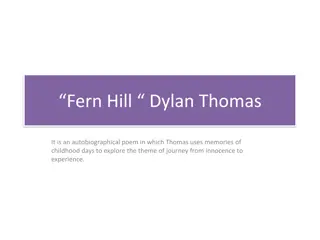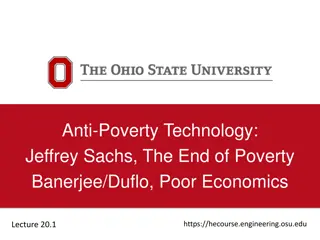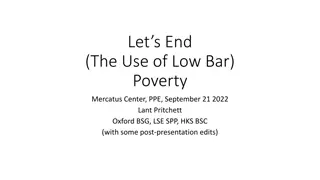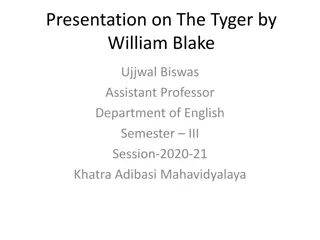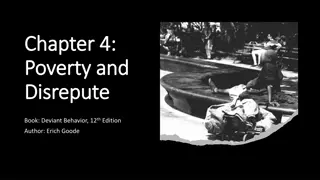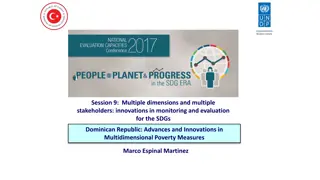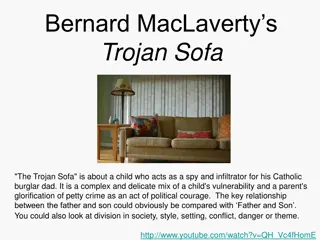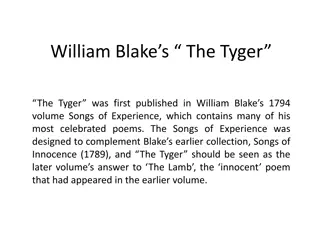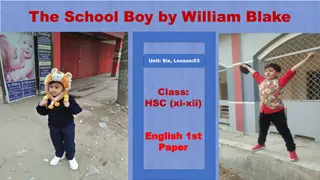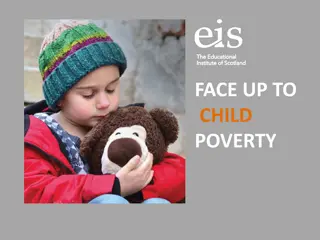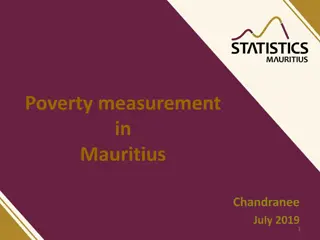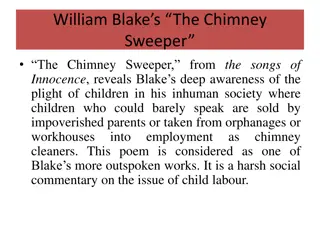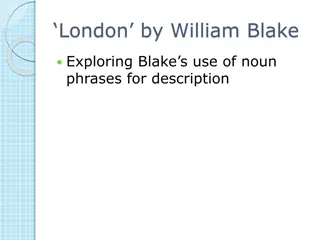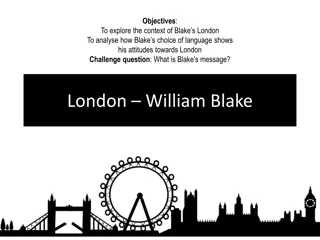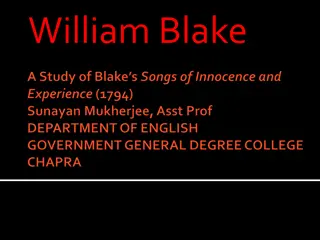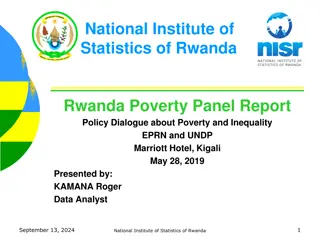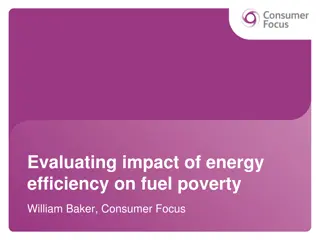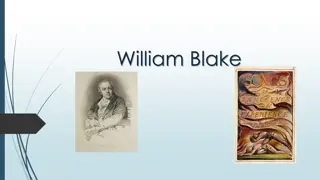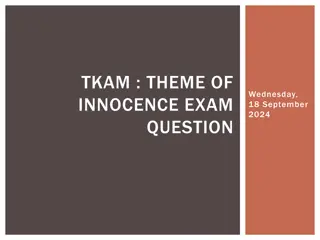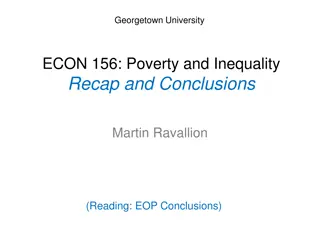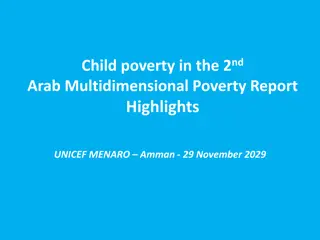Unveiling Blake's London: Innocence, Experience, and Poverty
Delve into William Blake's contrasting perspectives on innocence, experience, and poverty in London through analysis of his poems. Explore the themes of youth, age, authority, and societal contrasts woven intricately in his profound verses. Reflect on the thought-provoking imagery and rhetorical questions that challenge perceptions of charity, reality, and the harsh truths of poverty.
Download Presentation

Please find below an Image/Link to download the presentation.
The content on the website is provided AS IS for your information and personal use only. It may not be sold, licensed, or shared on other websites without obtaining consent from the author.If you encounter any issues during the download, it is possible that the publisher has removed the file from their server.
You are allowed to download the files provided on this website for personal or commercial use, subject to the condition that they are used lawfully. All files are the property of their respective owners.
The content on the website is provided AS IS for your information and personal use only. It may not be sold, licensed, or shared on other websites without obtaining consent from the author.
E N D
Presentation Transcript
HOLY THURSDAY WEDNESDAY, 26 FEBRUARY 2025
Beginnings: Think back to London , remember the overall message about the city as a place where innocence is only a shallow veneer. Blake seems to see Innocence as under threat from experience and reality. Holy Thursday was a day on which the poor and destitute children of London went to church to sing the praises, not of God, but of their benefactors.
TWO WAYS TO READ: Simply, this is a poem describing children praising those who have helped them. They are innocent lambs who send a great hymn to heaven in praise of charity. The narrator seems to be marvelling at the children as the raise their hands to heaven. Ironically, there is a darker side: The children are not spontaneous, they are in companies and marching like an army to the cathedral; they are lambs innocent and ready for slaughter? The Beadle is a threatening figure whose wand is both the colour of innocence as well as being cold and unfeeling. Once again the angel can be read both as being good and hypocritical like the one in Chimney Sweep.
CONTRASTS: The children with their red, blue and green are contrasted to the colours of authority. Find the contrast and explain it. The children are like the flowers of London town why? Youth and age are contrasted throughout. Why?
EXPERIENCE: Read the two poems together and what happens to the message? Rhetorical Questions force the reader to confront the truth: In the most powerful land in the world, there should be no poverty. The poem seems to be a direct response to the previous poem.
ANALYSIS hints The lines are short and blunt. How is this different to Innocence Thursday? What is the cumulative effect of the rhetorical questions? The narrator answers his first question in line 8. Is he right? Is there any sense that poverty could mean something other than a lack of money? What is the effect of the repetitions in Stanza 3? What is the effect of the assonance that runs through stanzas 3&4?
Stanza 4 Problems: Is he telling the truth? What is he saying? If it is true that babies can not hunger, then the last line must be true we can never be appalled by poverty, BUT since we all know that babies DO hunger, the last line must be false. The suggestion is, therefore that poverty does have the capacity to appal. Is this a deliberately ironic statement? Is Blake avoiding the issue? If you take the statements at face value they could be true maybe experience prevents people from seeing the harsh truth? Or is the place where the sun shines referring to the state of mind of the rich benefactors? In their minds no-one starves and poverty does not appal. There is no fixed answer. You need to think and make up your own minds
